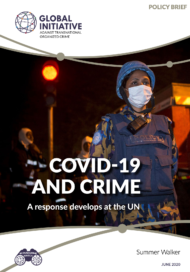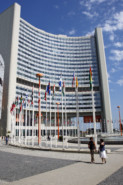Posted on 28 Feb 2019
The adoption of target 16.4 was, in many ways, a watershed moment, as it decisively and unequivocally placed organized crime on the development agenda. It acknowledged the inter-relationship between security and development, which was, at the time, becoming increasingly recognized among the development community. Since 2015, wide-ranging analysis and research have documented the connections not only between forms of organized crime and development, but also between stable governance, conflict and corruption. Multiple forms of organized crime are addressed at other points in the SDG agenda, including human trafficking (targets 5.2, 8.7 and 16.2); trafficking in wildlife (15.7 and 15c); and illegal fishing (targets 14.4 and 14.6).
Although acknowledging a series of organized-crime threats is essential to the development agenda, particularly within these key areas, experience has shown that organized crime is a cross-cutting threat to many core development objectives. Organized crime threatens directly not only specific goals, such as the reduction of poverty and the promotion of economic growth, but also the general maintenance of global biodiversity and sustainable environments; the building of safe and inclusive societies; the promotion of public health and people’s well-being; and even the orderly management of migration.
The agencies of the UN emphasize the ‘indivisibility’ of the SDG framework, and have stated that achievement of the SDGs requires progress across the broad spectrum of the agenda, and that failure to achieve targets in one goal area may preclude the achievement of others. While an integrated and indivisible agenda is to be welcomed, we would argue that it does not fully capture the harm that organized crime poses to achieving the SDGs, nor does it fully acknowledge that organized-crime threats are not individual or disparate issues across the development agenda, but are indicative of systemic, closely inter-related problems.
Despite the increasing weight of evidence demonstrating the wide-ranging implications of organized crime on development, and the increasing connections between different forms of criminal markets, strategies to counter organized crime within development efforts remain siloed, and its impacts on development objectives more broadly are not well understood. Development actors need to understand not only how organized crime will undermine their objectives, but also that development itself presents opportunities for organized crime to flourish. Too much of the analysis of and response to organized crime is crafted in the form of policies and approaches to counter specific illicit markets, rather than examining the issue and its impacts holistically.



